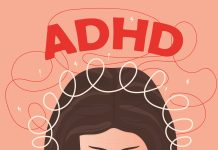Patients with depression on antidepressant drugs can experience ‘blunting’ – affecting both emotions and learning
Selective serotonin reuptake inhibitors (SSRIs), a widely used class of antidepressants, have been found to have a side effect of ‘blunting’, where patients report feeling emotionally dull and no longer finding things as pleasurable as they used to.
Research finds between 40-60% of patients taking SSRIs are believed to experience this side effect.
As antidepressant drugs commonly target serotonin, a chemical that carries messages between nerve cells in the brain and has been dubbed the ‘pleasure chemical’.
40-60% of patients taking SSRIs experience blunting
Over 8.3 million patients in England received an antidepressant drug in 2021/22
A research team found healthy volunteers and administered escitalopram, a common “best tolerated” SSRI, assessing the drug’s impact on their performance on a suite of cognitive tests.
The key novel finding was that there was reduced reinforcement sensitivity with those on SSRIs, which is an important behavioural process that allows us to learn from our environment.
In the participants taking escitalopram, many were less likely to use the positive and negative feedback to guide their learning of the task compared with participants on placebo. This suggests that the drug affected their sensitivity to the rewards and their ability to respond accordingly.
In total, 66 volunteers participated in the experiment, 32 of whom were given escitalopram, while the other 34 were given a placebo.
The finding may also explain the one difference the team found in the self-reported questionnaires: some volunteers taking escitalopram had more trouble reaching orgasm when having sex as a side effect.
“Our findings provide important evidence for the role of serotonin in reinforcement learning”
Respondents taking escitalopram were ‘less sensitive’ to rewards
Professor Barbara Sahakian, from the Department of Psychiatry at the University of Cambridge, said: “Emotional blunting is a common side effect of SSRI antidepressants. In a way, this may be, in part, how they work – they take away some of the emotional pain that people who experience depression feel, but, unfortunately, it seems that they also take away some of the enjoyment.
“From our study, we can now see that this is because they become less sensitive to rewards, which provide important feedback.”
Dr Christelle Langley, also from the Department of Psychiatry, added: “Our findings provide important evidence for the role of serotonin in reinforcement learning.
“We are following this work up with a study examining neuroimaging data to understand how escitalopram affects the brain during reward learning.”











